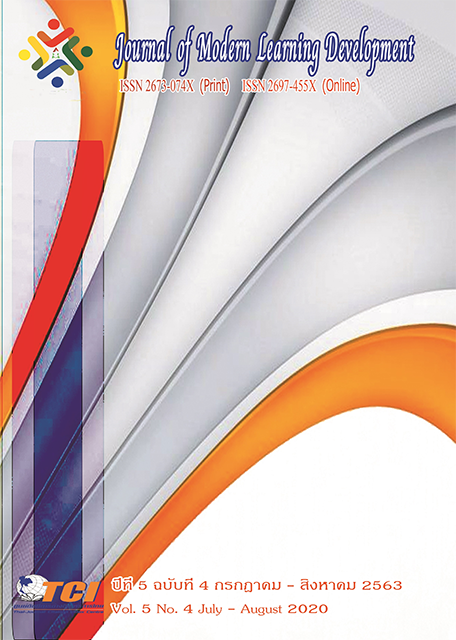The Human Capital Management according to Buddhism
Main Article Content
Abstract
Human resource management is extremely important because it is a strategy. Processes for managing personnel in the organization according to various dimensions So that personnel can perform their duties for the most efficiency. And cause problems to a minimum, including the development of personnel to have more potential For more efficient operations and for the increased success of the organization as well By integrating together, human capital management in accordance with Buddhism. It begins with the introduction of the four lotus principles to characterize human traits in order to prepare them for the foundation of human capital centered on the mind, which is a compass to guide towards the determination of Khan 5, which are The cornerstone of human capital building Applying the principles of Buddhist economics as a key framework for the daily life of human capital based on the globalized economy. And lastly, human capital development It is necessary to rely on the 3 principles of wisdom that will help train and develop the potential of human capital itself to become a complete human capital through knowledge and behavior, namely knowing and behaving. Including human capital to solve problems on their own according to the four noble truths, when human capital has been developed into a complete human capital, it will be an important mechanism in driving the organization to create efficiency in organizations at all levels. On the conditions of globalization
Article Details
References
จิรประภา อัครบวร. (2552). คุณค่าคนคุณค่างาน. กรุงเทพมหานคร: สำนักพิมพ์เต๋า (2000).
ดนัย เทียนพุฒ. (2553). ทุนมนุษย์จัดการให้ดีสู่ดีเลิศ. กรุงเทพมหานคร: โครงการฮิวแมนแคปปิตอล.
ธำรงศักดิ์ คงคาสวัสดิ์. (2550). ทุนมนุษย์การกำหนดตัวชี้วัดเพื่อพัฒนา. กรุงเทพมหานคร: สมาคมส่งเสริมเทคโนโลยี (ญี่ปุ่น-ไทย).
นิสดารก์ เวชยานนท์. (2551). มิติใหม่ในการบริหารทุนมนุษย์. กรุงเทพมหานคร: บริษัทกราฟิโก ซิสเต็มส์ จำกัด.
สำนักงานพัฒนาและวิจัยระบบงานบุคคล สำนักงานข้าราชการพลเรือน. (2547). ทุนมนุษย์กับการพัฒนาสมรรถนะการบริหารทรัพยากรบุคคล. กรุงเทพมหานคร: บริษัท พี ลีปวิ่ง จำกัด.
Brain Becker & Mark Hunselid. (2008). The New Human Capital Strategy. New York: AMACOM.


